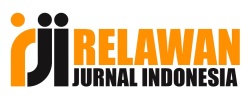Fostering Professionalism in Prospective Early Childhood Teachers through Practice-Based Edupreneurship
DOI:
https://doi.org/10.35719/gns.v6i1.207Keywords:
Professionalism of Early Childhood Teachers, Edupreneurship, Practice-Based LearningAbstract
The formation of the professionalism of prospective Early Childhood Education (ECE) teachers requires a learning approach that integrates theory and practice contextually. This study aims to evaluate practice-based learning in the Edupreneurship course as a strategy to strengthen the professionalism of prospective ECE teachers. This study uses a descriptive qualitative approach with an evaluative study design. Data were obtained through pre-tests, learning observations, project documents, and individual student reflections during 16 lecture meetings. The results of the study show five main transformations: (1) change in perception and increased motivation to become edupreneur, (2) strengthening practical competencies through the production of educational media, (3) mastery of digital skills, (4) increasing teamwork collaboration, and (5) resilience and problem-solving ability in facing real challenges. These findings show that education-based entrepreneurship projects not only train entrepreneurial skills, but also form the professional character of prospective early childhood education teachers who are adaptive, creative, and resilient. It is recommended that this model be systematically integrated into the early childhood education curriculum and developed in the context of cross-disciplinary learning in the future.
Downloads
Published
How to Cite
Issue
Section
License
Copyright (c) 2025 Syifauzakia Syifauzakia, M. Syarif Sumantri, Nurbiana Dhieni, Sri Wulan

This work is licensed under a Creative Commons Attribution-ShareAlike 4.0 International License.
All articles published in GENIUS: Indonesian Journal of Early Childhood Education are licensed under a Creative Commons Attribution-ShareAlike 4.0 International License (CC BY-SA 4.0).
This license allows others to share (copy and redistribute) and adapt (remix, transform, and build upon) the material for any purpose, even commercially, as long as appropriate credit is given to the original author(s) and the source, and any derivative works are distributed under the same license as the original.












